Special Report
Companies With the Best (and Worst) Reputations
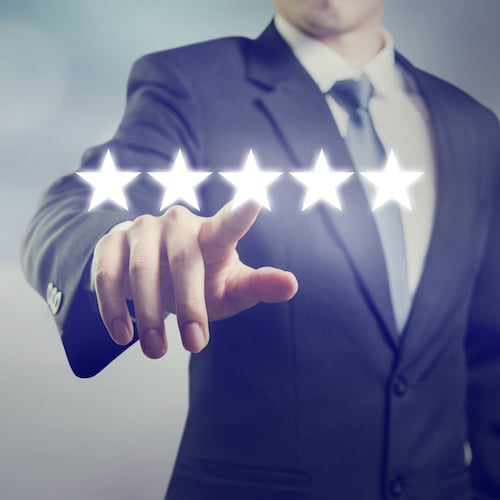
Published:
Last Updated:

It came to light in September that Wells Fargo had fraudulently opened over 2 million credit card and banking accounts without approval from customers, allowing the bank to collect $2.6 million in fees from its customers.The bank was fined $185 million by the Federal Deposit Insurance Company.
The scandal led to a shakeup of the bank’s corporate management, a stumble in share prices, and serious, perhaps permanent damage to the company’s reputation. According to a recently released Harris poll, Wells Fargo now has the second worst reputation of any major, highly visible company. Takata, the Japanese airbag manufacturer responsible for a 42 million vehicle recall, has the worst reputation.
[in-text-ad]
The Harris Poll Reputation Quotient measures public opinion on the nation’s most recognizable companies. Respondents were asked to rate companies based on six components: emotional appeal, products and services, vision and leadership, workplace environment, social responsibility, and financial performance. 24/7 Wall St. reviewed the companies with the highest and lowest reputation quotients. While Takata now has the worst reputation, e-commerce giant Amazon.com remains the best. These are the companies with the best (and worst) reputations.
Click here to see the companies with the best reputations.
Click here to see the companies with the worst reputations.
Many companies on both sides of this list are customer facing, and quality of service is a key part of their reputations — for better or worse. All of the well-regarded companies on this list with data from the American Customer Satisfaction Index have a customer satisfaction score of at least 80 out of 100. Companies with excellent reputations such as Amazon, Apple, and Google have among the highest scores in the ACSI.
None of the companies with the poorest reputations has a better score than 80 in the ACSI. The subscription television service of Charter Communications, which has the eighth worst reputation of any highly visible company, has a score of just 60 in the ACSI, nearly the worst.
A company’s reputation can have a meaningful impact on its bottom line, and vice versa. Most of the companies with the best reputations, including Amazon, Apple, Google, and Tesla have likely benefitted significantly from word of mouth about the quality of their products. Nearly every one of the best rated companies has reported considerable profits and several have had stock prices more than double in the past few years. With high sales and healthy profits, these companies can spend more on customer service, product quality, and employee satisfaction, creating a positive feedback loop that can boost reputation in the long term.
Meanwhile, several companies with poor reputations have lost money and have had plummeting share prices. For example, Sears shares are down by about 90% and the company has reported over $8 billion in losses over the past five years. As the company continues to lose money, it will likely be forced to cut corners, doing itself no favors in terms of customer service and reputation.
Company reputation is not just determined by the quality of products or services, but often by specific events. Wells Fargo one clear example of this, as the 2016 account scandal caused the bank’s reputation to plummet by more than 20% in a single year. Volkswagen’s diesel emissions scandal in 2015 destroyed the German automaker’s reputation, and the company still ranks among the 10 worst.
Several brands on this list, including Takata, are only visible enough to be considered in the Harris Reputation Quotient because they were involved in scandal. Others, such as Monsanto, Halliburton, and Chick-fil-A, have polarizing reputations closely tied to the respondent’s political convictions.
To determine America’s most and least reputable companies, 24/7 Wall St. reviewed reputation scores among the nation’s 100 most recognizable companies from the 2017 Harris Poll Reputation Quotient (RQ), produced by Harris Interactive. The study consists of two parts: a nominations stage in which consumers identify the nation’s most visible companies, followed by a ratings stage, in which each company’s reputation is measured on a scale of 0-100. In addition, we considered company consumer satisfaction scores from the American Customer Satisfaction Index (ACSI), and company information from SEC filings.
These are the companies with the best (and worst) reputations.
Best Reputation:
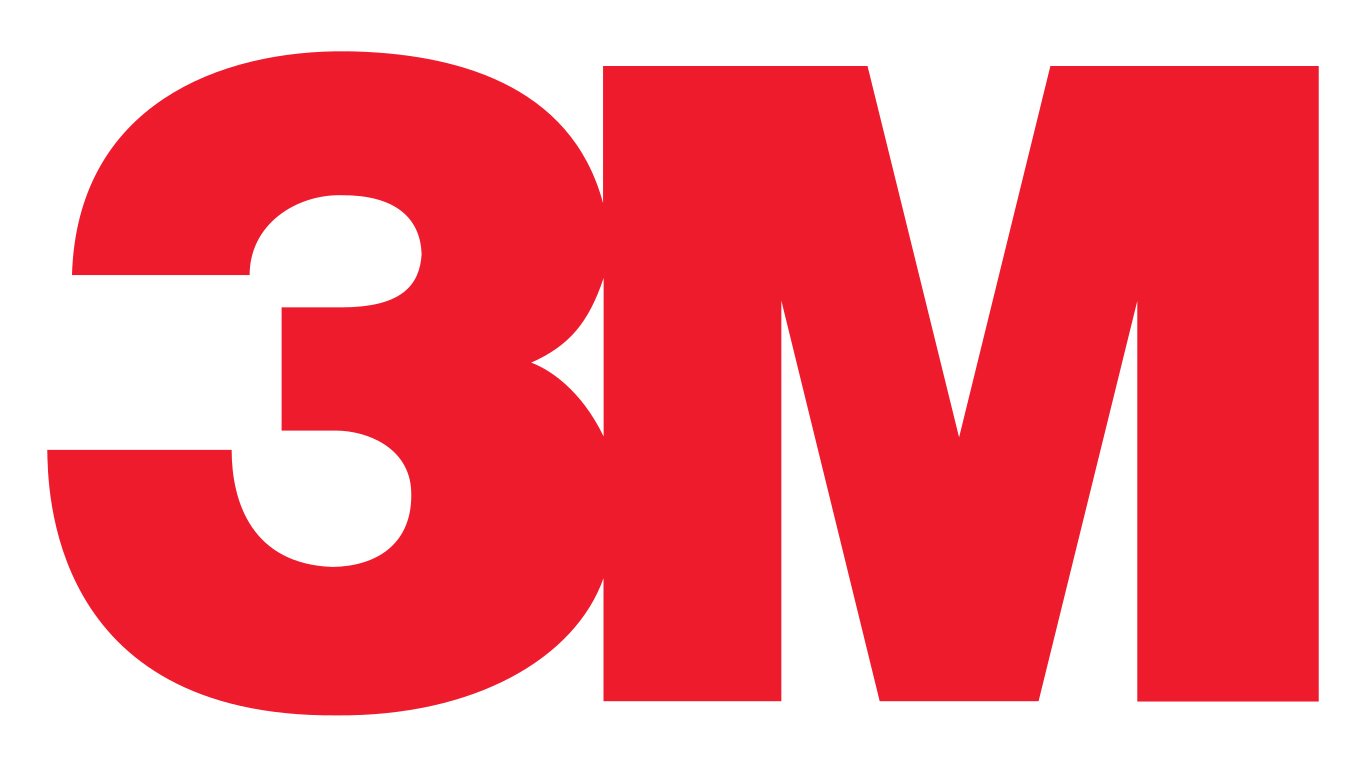
10. 3M Company
> 2017 reputation quotient: 81.50
> 2016 reputation quotient: N/A
> Industry: Product manufacturing
> CEO: Inge G. Thulin
Based on the Harris Poll Reputation Quotient study, 3M has an excellent reputation, ranking 10th highest among visible American companies. 3M was originally founded in 1902 as primarily a mining operation, with the three Ms standing for the Minnesota Mining and Manufacturing co. The company has since evolved considerably. Based in St. Paul, Minnesota today 3M creates a wide range of consumer, industrial, healthcare, safety, and electronics products. In the Harris poll, 3M receives particularly high marks for the quality of its products. The company’s positive reputation may be helping its financial performance on Wall Street. Shares of 3M have risen by more than 100% over the past five years.
[in-text-ad]
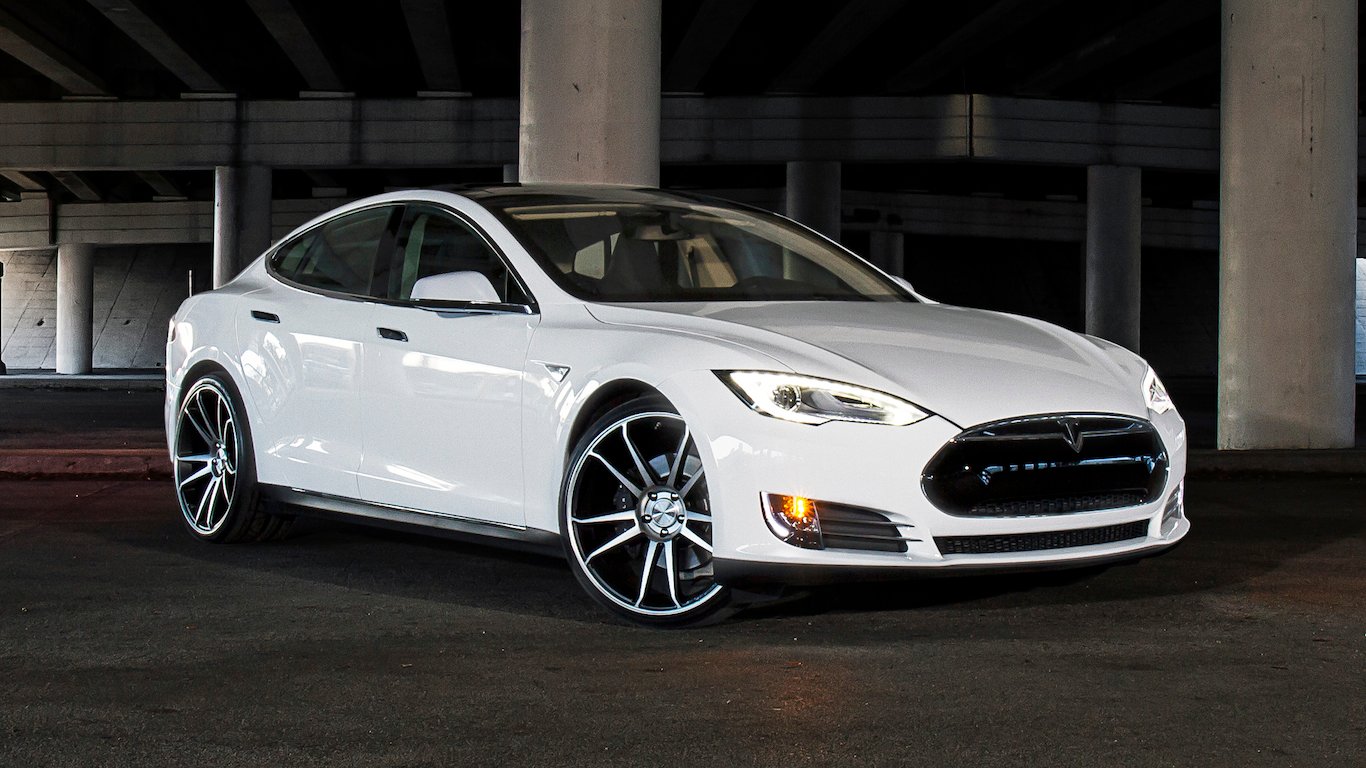
9. Tesla Motors
> 2017 reputation quotient: 81.70
> 2016 reputation quotient: N/A
> Industry: Automaker
> CEO: Elon Musk
The 2017 edition of the Harris Poll study included for the first time electric car manufacturer Tesla as one of the most visible companies. In its first year, Tesla also rated as one of the most positively reviewed of the highly visible companies. The automaker was founded by tech mogul and icon Elon Musk, who also heads SpaceX. In August 2015, Tesla’s Model S received a score of 103 from Consumer Reports, the highest score the review company has ever awarded to a car. According to Harris Poll, while most Americans cannot afford a Tesla — the Model S and Model X each has an MSRP greater than $70,000 — Musk’s star power helps drive up the company’s reputation. Tesla’s reputation for vision and leadership ranked third best among all companies considered in the Harris Poll study.

8. Google
> 2017 reputation quotient: 82.00
> 2016 reputation quotient: 82.97
> Industry: Internet
> CEO: Sundar Pichai
Compared to other companies on this list, Google’s reputation has declined, albeit slightly. In the 2017 edition of the Harris Poll study, Google received a reputation score of 82, slightly below its rating of 83 last year. Still, the internet giant remains one of the most well-regarded brands in the world. Google has long been the dominant search engine worldwide, and Google’s Chrome web browser now commands a substantial lead in its market as well, surpassing long-time leaders such as Microsoft’s Edge (formerly Internet Explorer) and Mozilla’s Firefox. Google has a reputation for being an excellent employer. On employee review site Glassdoor, the company received an extremely high 4.4 out of five, and 98% of employees said they approve of company CEO Sundar Pichai, who was appointed in August 2015.
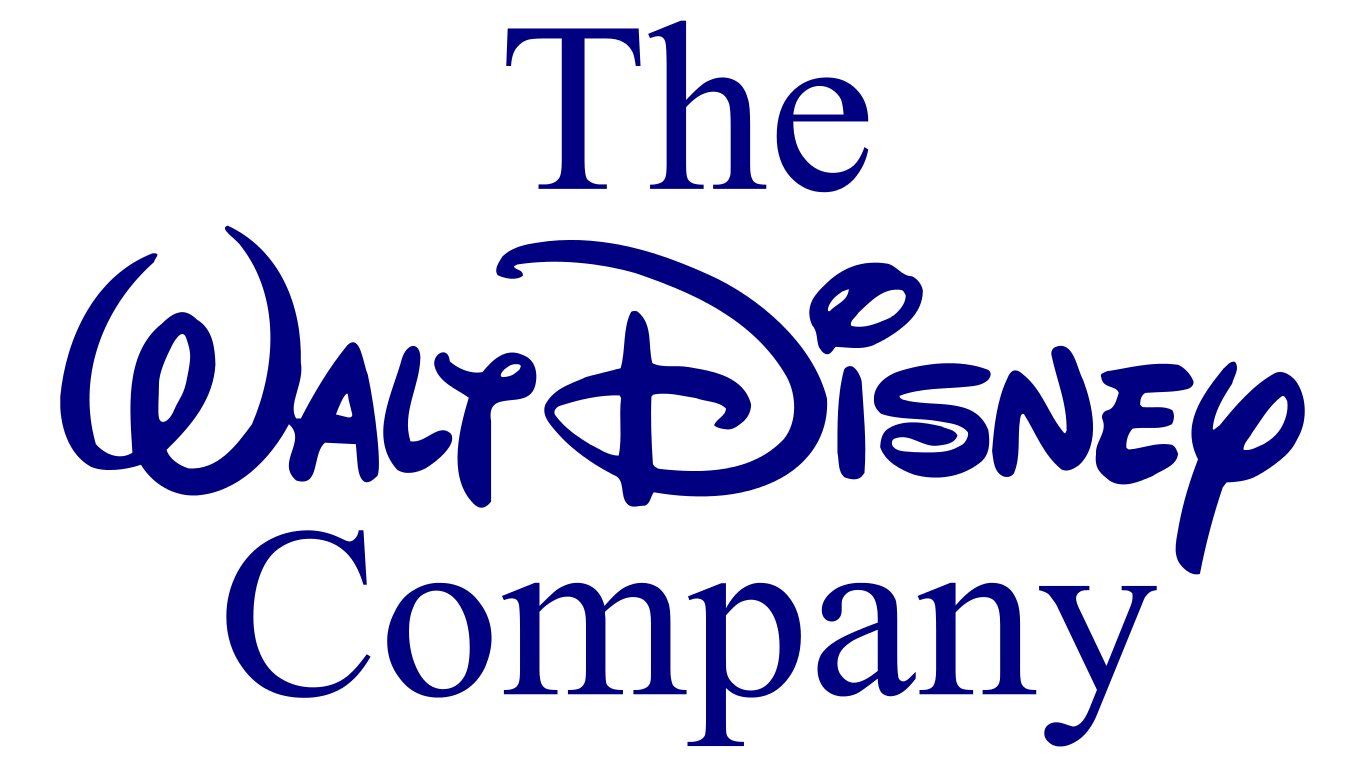
7. The Walt Disney Company
> 2017 reputation quotient: 82.04
> 2016 reputation quotient: 81.18
> Industry: Film and entertainment
> CEO: Bob Iger
For decades, The Walt Disney Company has produced wildly popular children’s movies, and the company’s theme parks have been popular tourist destinations since Disneyland opened in 1955. The company has expanded its reputation and influence in film recently, producing many of the most popular films of the decade. In addition to Disney Studios, the company is the long-time owner of digital animation studio Pixar. It also acquired Marvel Studios in 2009 and Lucasfilm 2012. In 2015 and 2016 alone, Disney’s Buena Vista studios produced nine of the 100 highest grossing films of all time. In December, Disney became the first company to surpass $7 billion at the global box office in a single year. Partially as a result of the company’s success in Hollywood, shares of Disney have increased by over 160% over the last five years. With high revenues and strong returns for investors, Disney’s reputation for financial performance ranks third among all U.S. companies.
[in-text-ad-2]
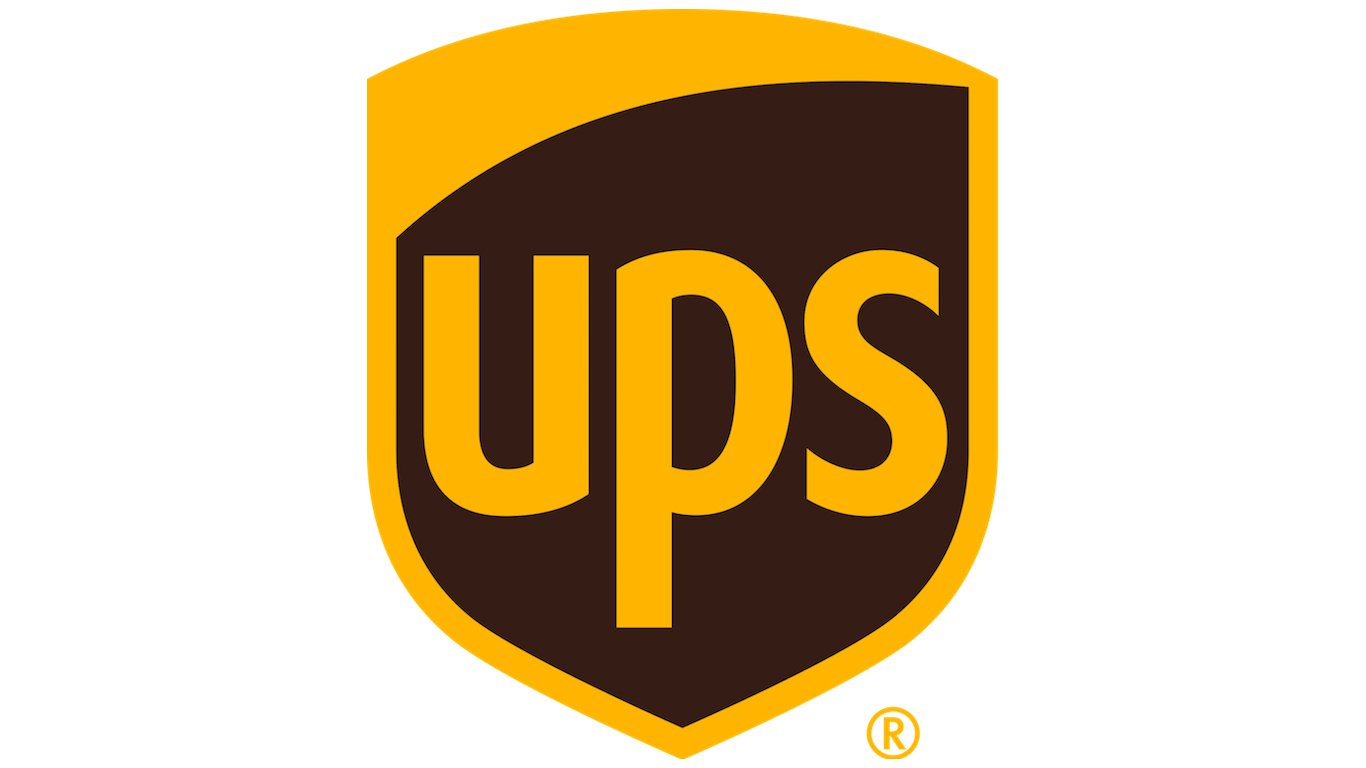
6. UPS
> 2017 reputation score: 82.05
> 2016 reputation score: 78.22
> Industry: Package delivery
> CEO: David Abney
With a fleet of 108,210 automobiles, 237 jet aircraft, and over 434,000 employees, the United Parcel Service delivers an estimated 19.1 million packages and documents around the globe every day. Perhaps contributing to its positive public image, UPS has a number of environmentally friendly practices in place. It was the first major package delivery business to offer customers and clients the chance to buy carbon offsets to negate the emissions generated by the shipping of their packages. According to Harris Poll, the company’s efforts to modernize — by diversifying and strengthening connections to e-commerce — have also provided a major reputation boost.
Like many of the companies on this list, UPS in the last five years, Like many other companies on this list, UPS has been a strong performer on Wall Street. In the last five years, the company’s share price has gone up by over 37%. The company’s reputation has improved recently, with its reputation quotient rising from 78.22 in 2016 to 82.05 in 2017, one of the largest improvements of any company.
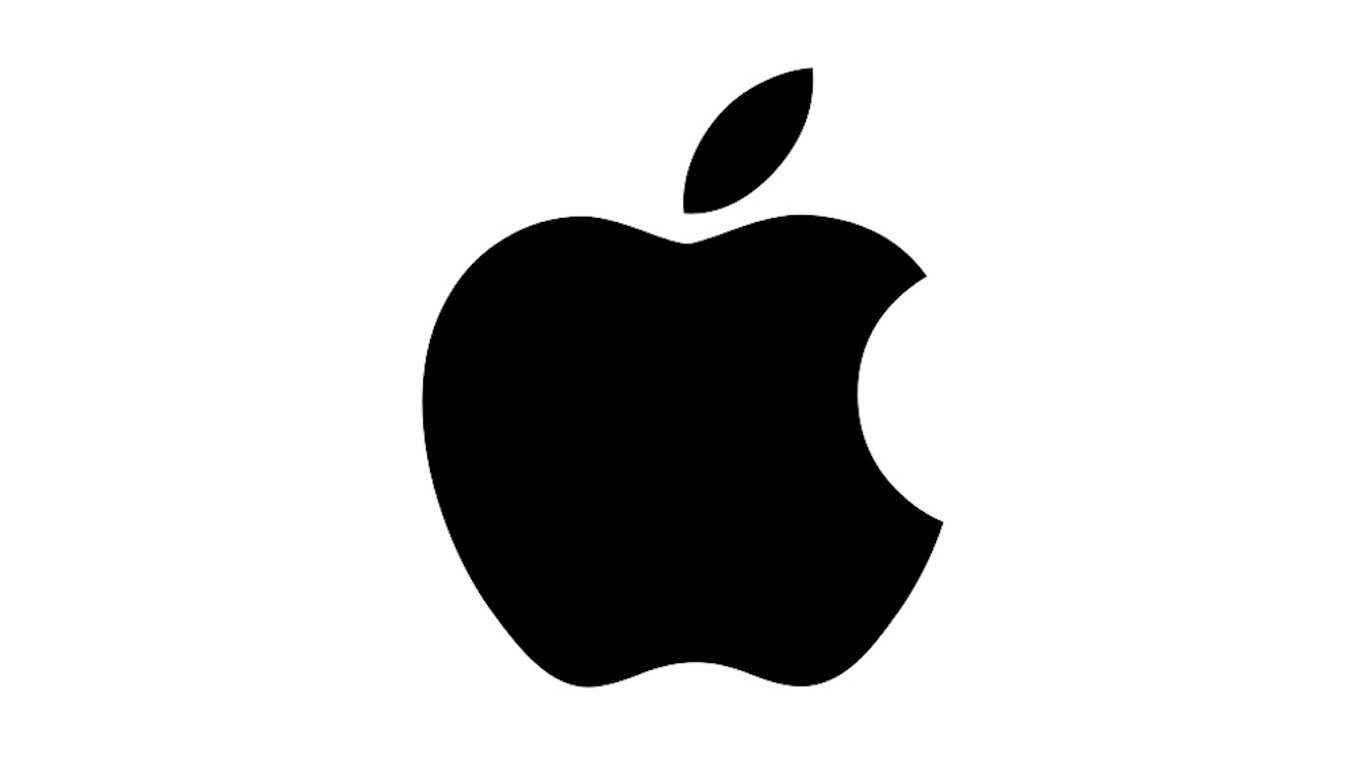
5. Apple
> 2017 reputation score: 82.07
> 2016 reputation score: 83.03
> Industry: Consumer electronics
> CEO: Tim Cook
Apple is one of four Silicon Valley corporations to rank among the companies with the best reputations. Apple’s broad appeal is exemplified by the ubiquity of some of its products. Over 90 million Americans owned an iPhone last year — comprising a 43.5% share of the domestic smartphone market. Apple may have also scored social responsibility points with some American consumers, and lost points with others when, early last year, the company controversially refused to unlock the phone of the San Bernardino massacre shooter for the FBI. In a public statement, the company suggested such an intrusion into personal property would set a dangerous precedent that the government could exploit in much less publicly visible cases.
Apple also has a well-earned reputation for strong financial performance. Over the past decade, the company’s share price has increased by over 1000%. In 2016, the company reported a net income of $46 billion, 13 times the company’s earnings a decade prior.
[in-text-ad]
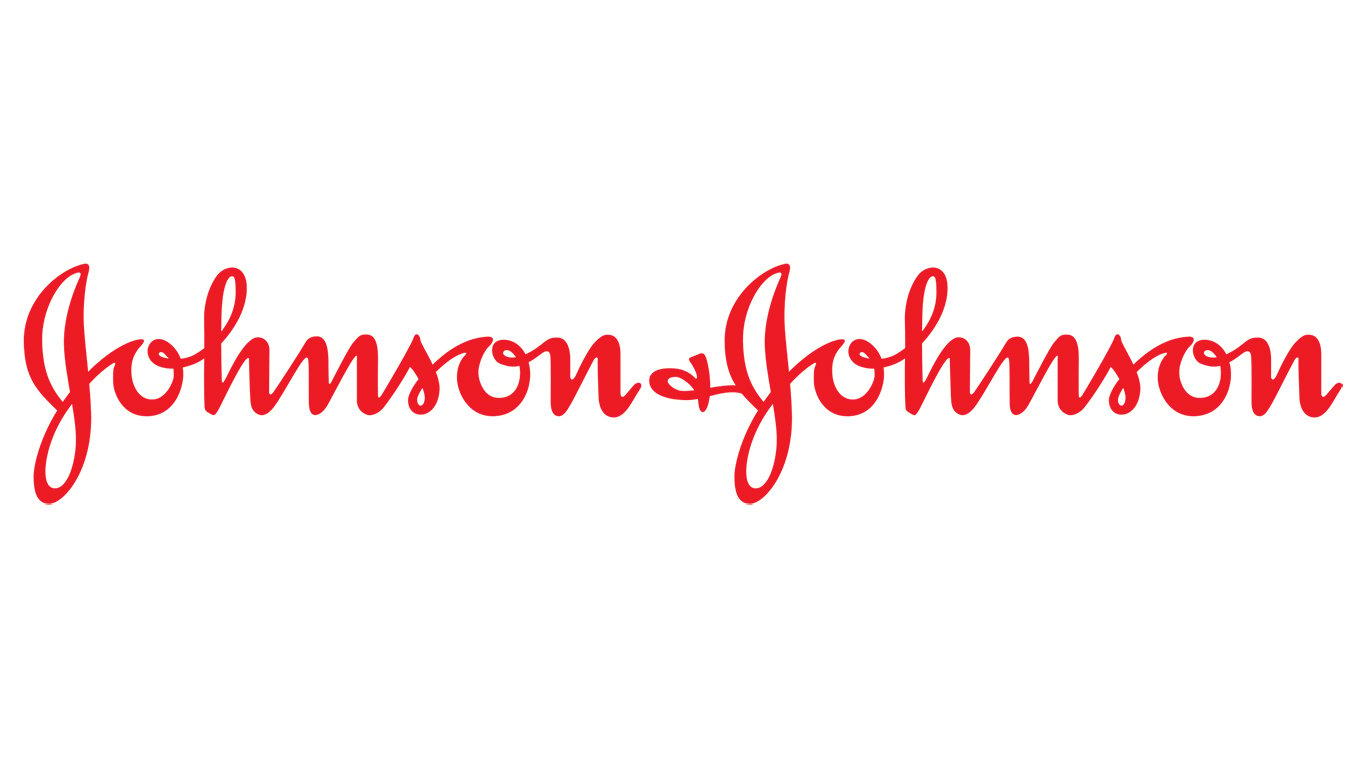
4. Johnson & Johnson
> 2017 reputation score: 82.57
> 2016 reputation score: 80.23
> Industry: Consumer products
> CEO: Alex Gorsky
Few companies have the kind of exposure to the average American consumer that Johnson & Johnson has. The company is behind such common household brands as Tylenol, Band-Aid, Listerine, Neutrogena, and Aveeno. The company also manufactures a range of medical devices and pharmaceutical drugs. Trusted by American consumers, the company is also held in high esteem by its employees. On employee review site Glassdoor, the company received an extremely high 4.1 out of five rating, and 96% of employees said they approve of company CEO Alex Gorsky, who was appointed in April 2012.
The company’s financial performance helped drive up its strong overall reputation in the Harris Poll survey. The company’s revenue climbed from $70.1 billion in 2015 to $71.9 billion in 2016, and profits climbed proportionally. Now trading at near record highs, the company’s share price has climbed by 93% over the past decade, outperforming both the Dow Jones Industrial Average and S&P 500 indices.
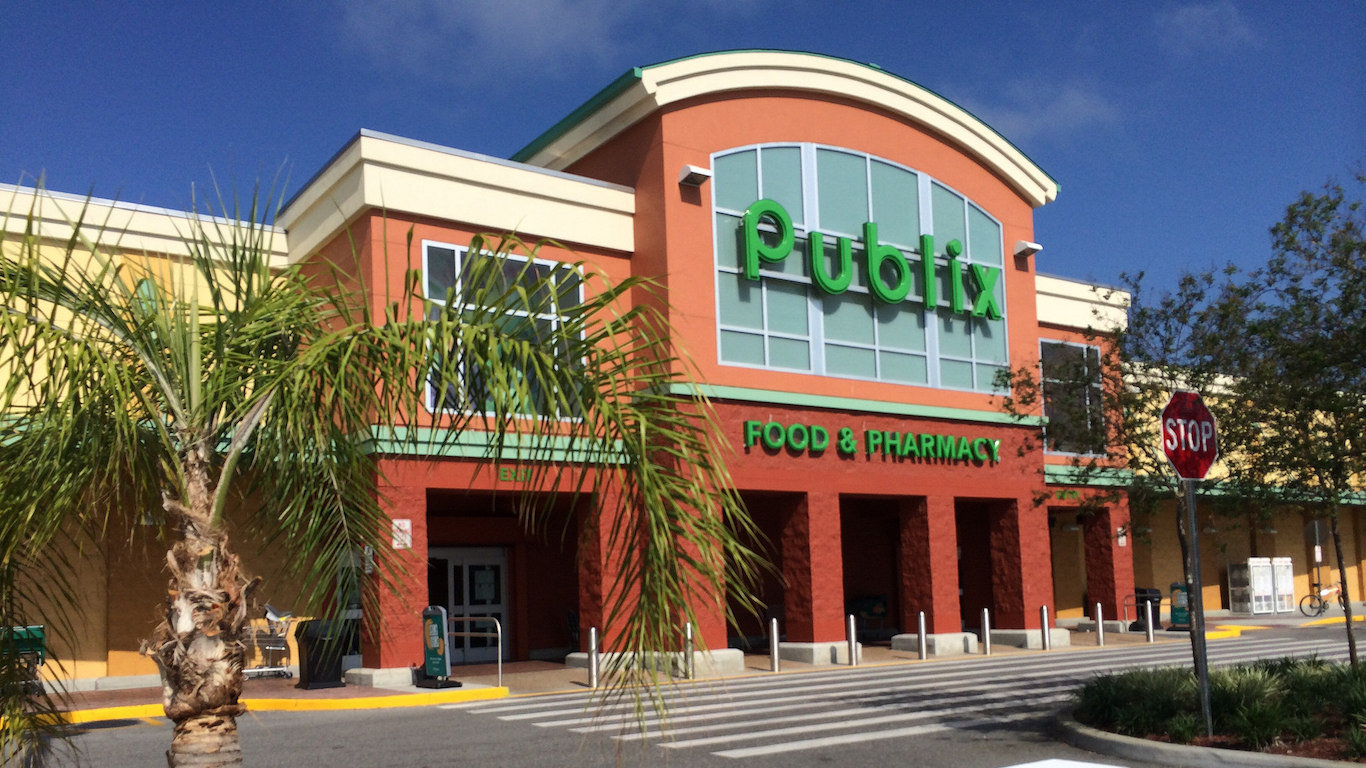
3. Publix Super Markets
> 2017 reputation score: 82.78
> 2016 reputation score: 80.94
> Industry: Grocery stores and supermarkets
> CEO: Todd Jones
Consistently ranked among the top supermarket chains in the country by a range of news outlets, Publix Super Markets is also one of the most highly regarded companies in the country. The first Publix location opened in Winter Haven, Florida in 1930. Since then, the company has grown substantially and now has over 1,100 locations in six states.
In its mission statement, Publix expresses its commitment to customers, employees, and the communities it serves — commitments it appears to honor. On employee review site Glassdoor, Publix workers regularly tout the company’s benefits and 3 out of 4 employees would recommend a job at Publix to a friend. Publix’s image also certainly benefits from its charitable giving. Over the years, the company has been recognized for its work with Feeding America, United Way, and recently ranked highest nationwide for its giving to March of Dimes.
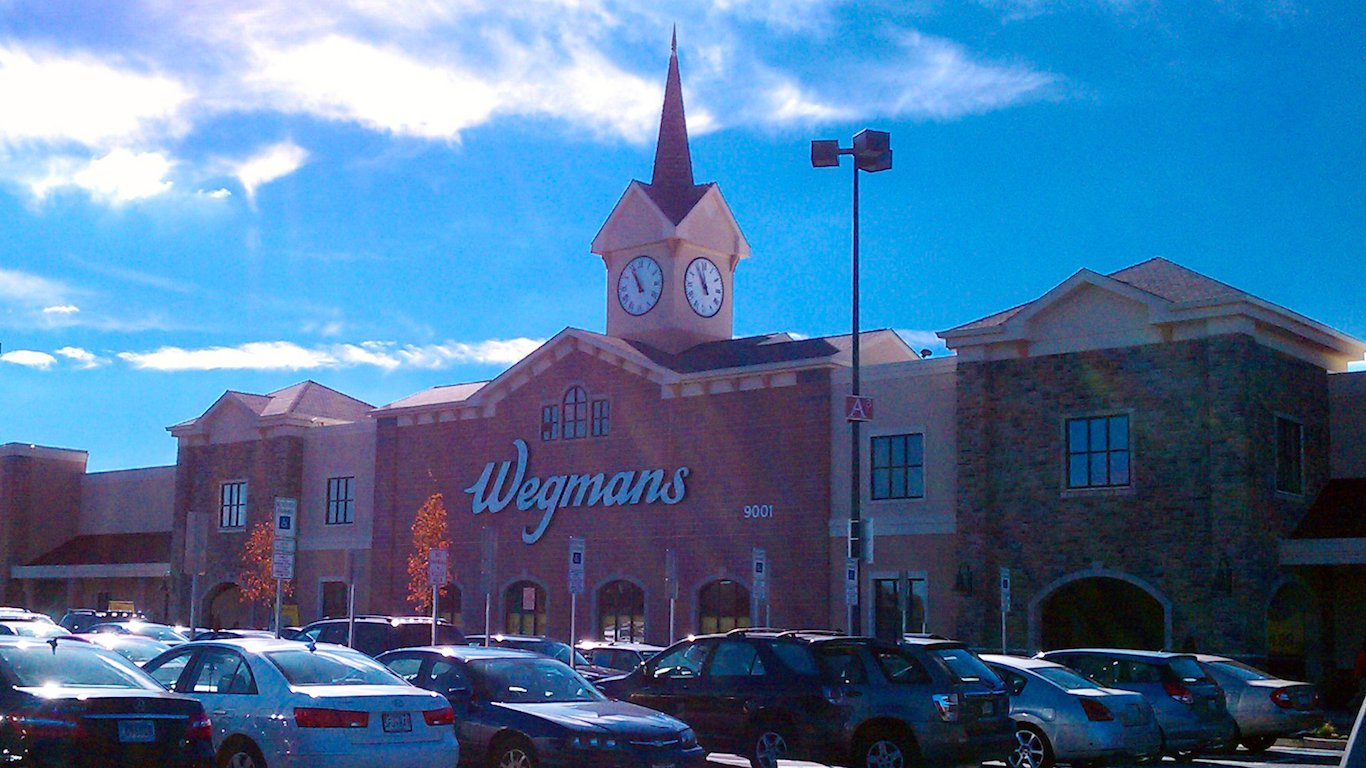
2. Wegmans
> 2017 reputation score: 85.41
> 2016 reputation score: N/A
> Industry: Grocery stores
> CEO: Danny Wegman
Wegmans was founded in 1916 in Rochester, New York and has since grown into one of the largest family-owned businesses in the world. Wegmans has cultivated a loyal customer base that is perhaps unmatched by any grocery store of its size. New store openings have been known to draw lines of thousands of customers. Fans regularly take to Twitter and other internet outlets to express excitement over new locations. While the store’s expansion rate of four new stores a year is relatively slow, it is no indication of poor sales. According to one store spokesman, the slow expansion is due to the months of recruitment and training of new employees. Wegmans’ investment in its employees has in turn saved the company money through low employee turnover. One in five Wegmans employees stays with the company for 10 years or more, nearly the longest such tenure in the grocery industry.
[in-text-ad-2]

1. Amazon.com
> 2017 reputation score: 86.27
> 2016 reputation score: 83.96
> Industry: Internet retail
> CEO: Jeff Bezos
Of the six dimensions of corporate reputation, Amazon outshines all other companies in financial performance, vision and leadership, products and services, and emotional appeal. One reason behind Amazon’s widespread emotional appeal may be the company’s customer service. For as long as ACSI has ranked Amazon, the company has had one of the highest customer satisfaction scores of any U.S. business. The company’s innovations in online retail have also likely contributed to its great reputation. Between 1-click ordering, Amazon Prime, and various experimental redesigns of the traditional brick-and-mortar store concept, the company has been behind some of the boldest innovations in retail in recent years. Amazon Studios also made history recently by winning three Academy Awards at this year’s Oscars — a first for online streaming studios.
Worst Reputations:
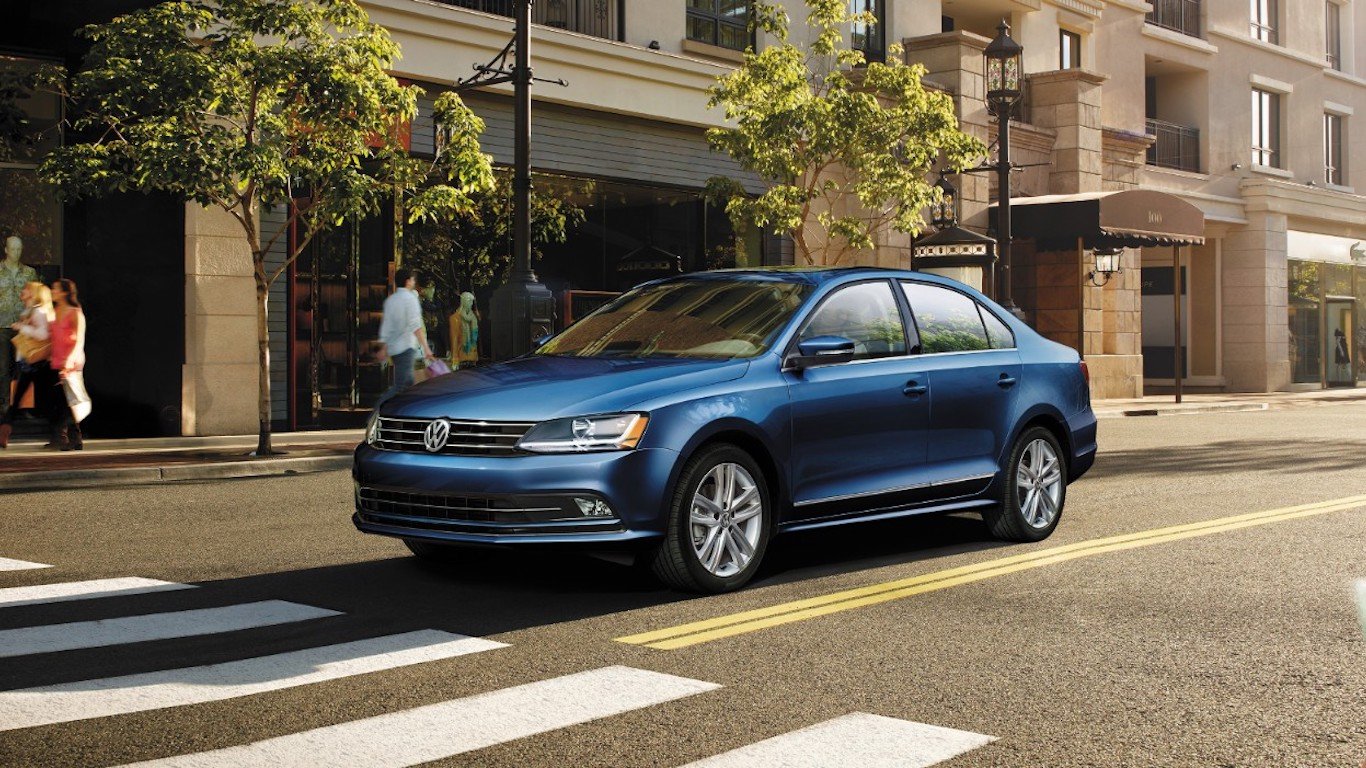
10. Volkswagen Group
> 2017 reputation score: 63.46
> 2016 reputation score: 54.75
> Industry: Automobile manufacturing
> CEO: Matthias Müller
The Environmental Protection Agency announced in September 2015 that a number of Volkswagen vehicles had been rigged to pass emissions tests. Volkswagen admitted that 11 million of its cars were manipulated to falsely understate exhaust emissions levels. The scandal was one of the worst instances of major corporate fraud in recent history. It resulted in more than $20 billion in fines and lawsuits in the U.S. alone, the resignation of the CEO and suspension of several executives, and pending criminal charges for a number of U.S. employees. While Volkswagen’s reputation is recovering — the increase in the company’s reputation score from 54.75 in 2016 to 63.46 in 2017 was the largest of any corporation — the automaker has one of the worst reputations of any company today.
[in-text-ad]

9. AIG
> 2017 reputation score: 63.22
> 2016 reputation score: 61.15
> Industry: Insurance
> CEO: Peter Hancock
AIG can trace its roots back nearly 100 years to its Shanghai-based predecessor, a general insurance company known as American Asiatic Underwriters. Today, the company provides insurance and other financial services in more than 100 countries.
The company’s reputation took a major hit during the financial crisis, when the federal government stepped in to save the insurer it considered too big to fail with an $85 billion bailout. AIG is one of several companies on this list to receive a bailout during the Great Recession, many of which are also blamed for contributing to the crisis that led to their downfalls. Currently, company board members are discussing CEO Peter Hancock’s future with the company, as his two-year restructuring plan designed to reward shareholders appears to be failing.
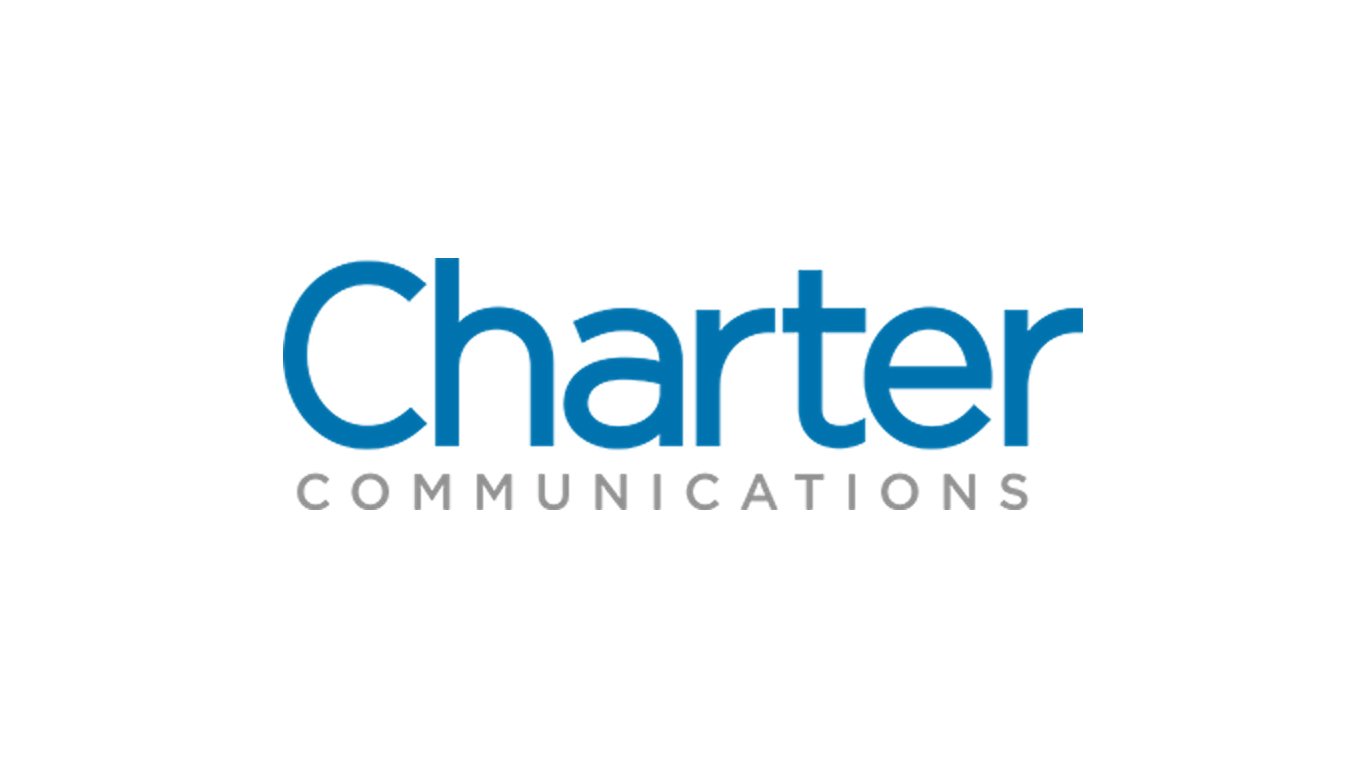
8. Charter Communications
> 2017 reputation score: 62.80
> 2016 reputation score: 64.78
> Industry: Cable telecommunications
> CEO: Thomas Rutledge
Charter Communications is a telecommunications company that sells cable, phone, and internet services through the brand Charter Spectrum. After purchasing Time Warner Cable and Bright House Networks in 2016, Charter became the second largest broadband internet provider and third largest pay-TV provider in the United States. Those who opposed the merger claimed that the less competition would leave little incentive for Charter to improve its customer service. Charter Communications currently has one of the lowest customer satisfaction scores of any major company on the ACSI. While most of the Harris Poll’s 100 most recognizable companies improved in reputation over the past year, Charter’s reputation score fell from 64.78 in 2016 to 62.80 in 2017 — one of the largest declines of any company.
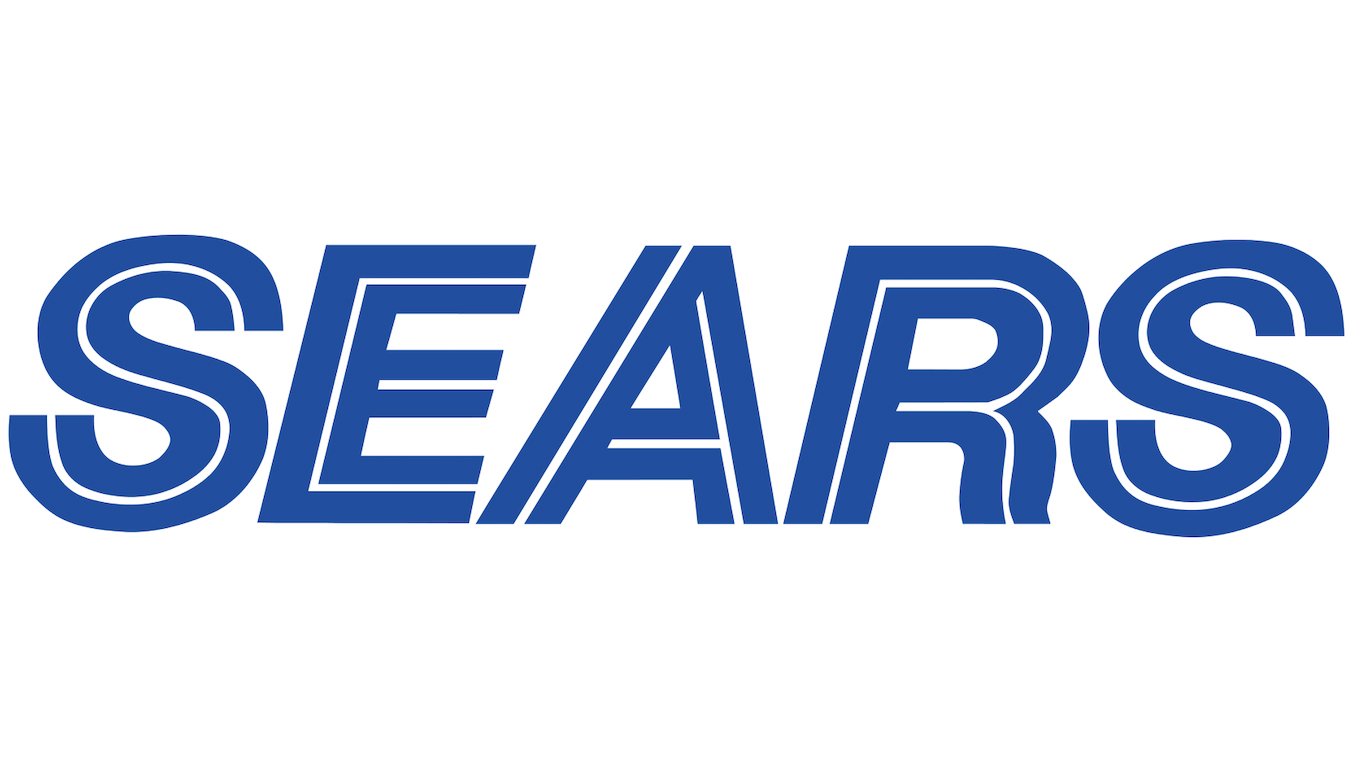
7. Sears Holdings Corporation
> 2017 reputation score: 62.74
> 2016 reputation score: 64.69
> Industry: Retail
> CEO: Edward Lampert
Sears has long struggled against the rising tide of e-commerce. In the ACSI, Sears ranks third worst in customer service among major retailers, ahead of only Ross Stores and Wal-Mart. Sears continues to close stores nationwide. Even as it is constantly trimming down operations, the company loses money. Sears Holding Corporation has reported a net loss in each of the last five fiscal years, amounting to over $8.3 billion. Over the past five years, company shares plunged by nearly 90%.
Like many other companies on this list, Sears Holdings does not appear to do well by its employees. According to reviews on Glassdoor, fewer than one in three employees would recommend a job with the company to a friend. Only 13% of employees approve of CEO Edward Lampert.
[in-text-ad-2]

6. Bank Of America
> 2017 reputation score: 59.69
> 2016 reputation score: 64.26
> Industry: Finance
> CEO: Brian Moynihan
Bank of America, the second largest American bank based on total assets, did not have a good year when it comes to its reputation. In the 2016 edition of the Harris Poll survey, the bank received a reputation score of just 64. In the 2017 edition, BofA’s score fell below 60, one of the sharpest drops of any company. The company has faced a number of lawsuits for its actions and the actions of companies it acquired, including Bear Stearns, during the financial crisis. In January, the Federal Deposit Insurance Corpoation sued Bank of America for $542 million for money the bank allegedly owes the federal body.
Customer service is a big part of a company’s reputation, and Bank of America’s ACSI score of just 75 is tied with Chase as the worst among major banks.
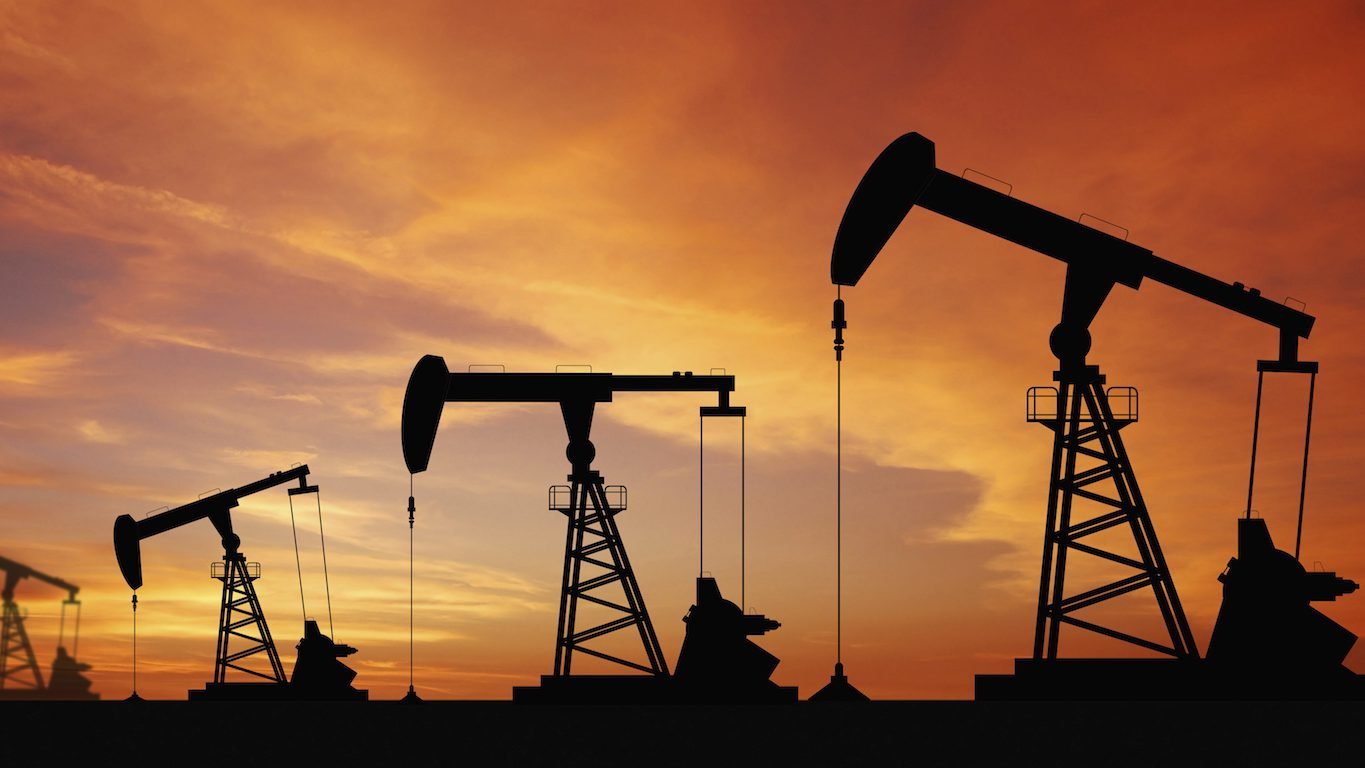
5. Halliburton
> 2017 reputation score: 58.30
> 2016 reputation score: 56.26
> Industry: Oilfield services
> CEO: David J. Lesar
Despite a slight increase from 56.26 in 2016 to 58.30 in 2017, Halliburton’s reputation quotient is among the lowest of any major company. Many Americans have likely come to know of Halliburton as the result of the oilfield services company’s numerous scandals and controversies. In 2010, Halliburton was found partially responsible for the BP oil spill in the Gulf of Mexico, and later pleaded guilty to destroying evidence concerning the company’s culpability. Halliburton may have generated the most public ire following the recent war in Iraq, when it was revealed the company earned $39.5 billion in contracts during the conflict. Some of the most damaging allegations included charges that then Vice President Dick Cheney, who was previously CEO of Halliburton, gave preference to his former employer through no-bid contracts.
[in-text-ad]

4. Monsanto
> 2017 reputation score: 56.61
> 2016 reputation score: 60.43
> Industry: Agriculture chemicals
> CEO: Hugh Grant
Few companies have received the kind of public scorn that Monsanto, the world’s largest seed company, has faced recently as it is perceived by many to favor profit at the expense of the environment and public health.
The company’s PR problems stem from a range controversies, from patent infringement to pollution. In the last 20 years, Monsanto has drawn criticism as a Goliath-like bully for suing U.S. farmers who saved the company’s patented seeds. More recently, the company has been the defendant in more than 20 lawsuits that accuse Monsanto of hiding the carcinogenic effects of its popular Roundup pesticide. The company is also being sued by the city of Seattle for polluting the municipal drainage system and nearby Duwamish River with toxic PCBs.

3. Goldman Sachs
> 2017 reputation score: 56.32
> 2016 reputation score: 60.44
> Industry: Finance
> CEO: Lloyd Blankfein
In the 2016 presidential election, Goldman Sachs came to symbolize the public’s animosity towards the financial industry. Hillary Clinton was heavily criticized for giving paid speeches at events sponsored by the bank, and earlier in the election Ted Cruz received negative backlash for not disclosing funds contributed from Goldman Sachs for his 2012 Senate campaign. While public image is an important consideration for any company, a bad reputation may have less effect on businesses whose clients are mostly hedge funds and institutional investors. While the bank’s reputation has yet to recover from the effects of the financial crisis, it has regained access to the White House with several previous executives now serving in President Donald Trump’s administration.
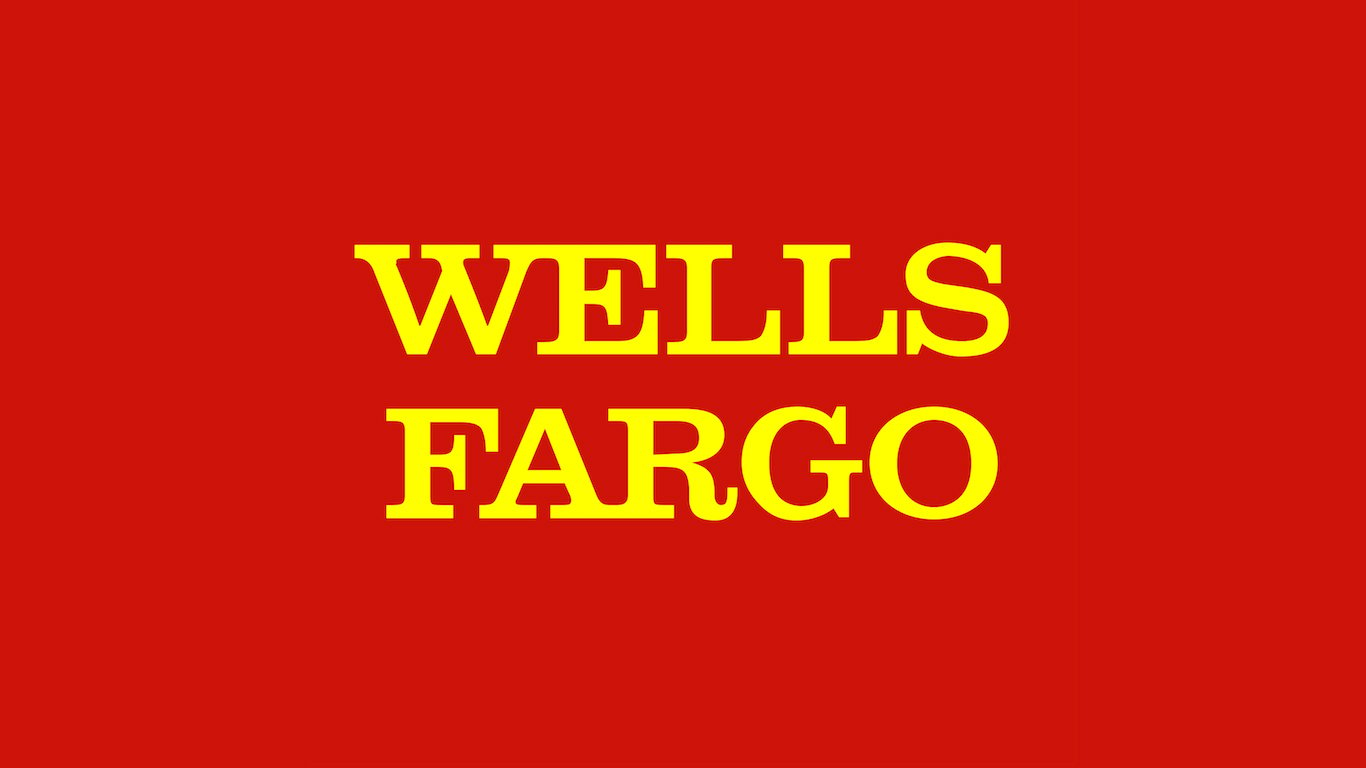
2. Wells Fargo & Company
> 2017 reputation score: 49.11
> 2016 reputation score: 69.73
> Industry: Finance
> CEO: Timothy J. Sloan
While financial services companies tend to have the worst reputations of any major businesses, recent scandal has pushed Wells Fargo’s reputation score even farther south — today the bank has the worst reputation of any financial company. In September 2016, the public learned that Wells Fargo employees had opened more than 1.5 million bank accounts and 565,000 credit cards without the permission of their customers, all the while charging fees on the phony accounts. Wells Fargo was fined $185 million in customer lawsuits and federal penalties. Likely as a result, the company’s reputation score fell from 69.73 in 2016 to 49.11 in 2017, by far the largest decline of any company over the period.
[in-text-ad-2]
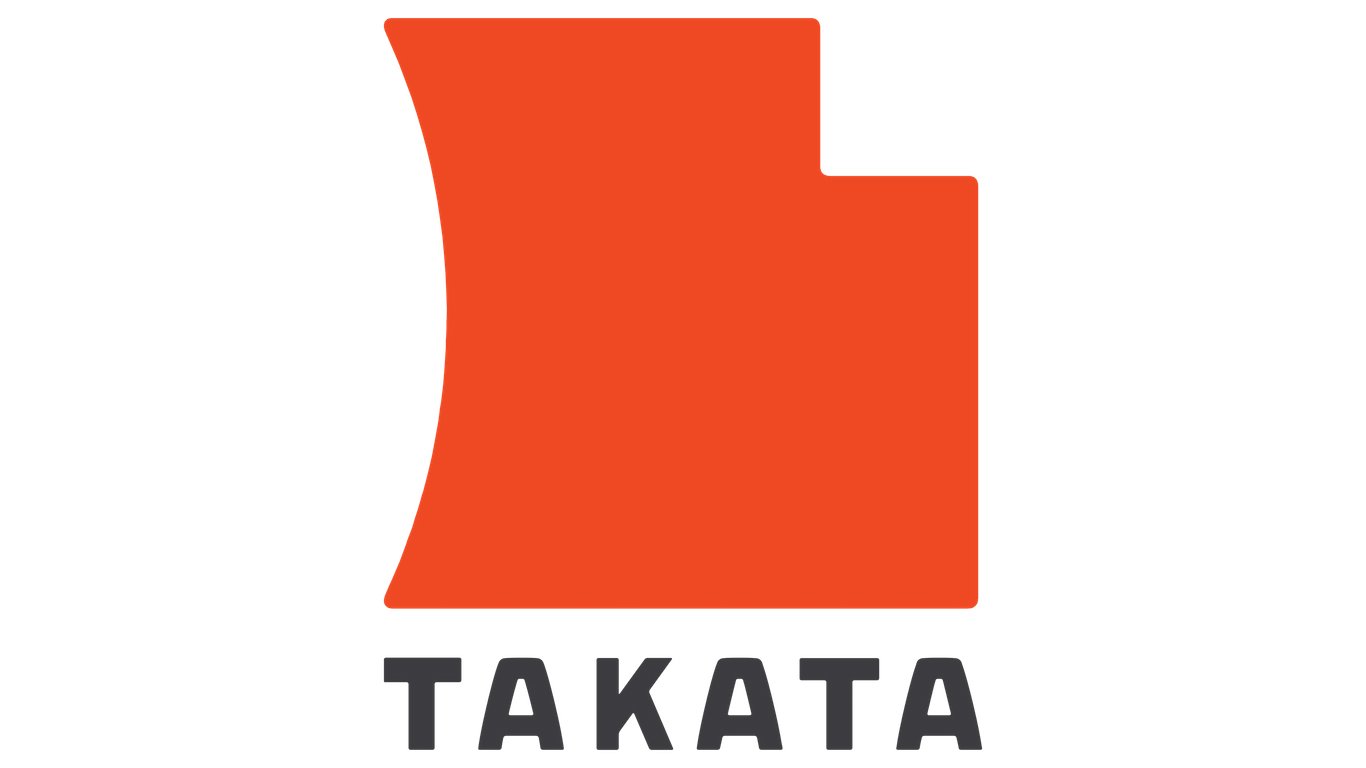
1. Takata
> 2017 reputation score: 48.70
> 2016 reputation score: N/A
> Industry: Automotive parts
> CEO: Shigehisa Takada
In its first year among the Harris Poll’s 100 most visible businesses in the U.S., Takata debuts with the lowest reputation quotient of any company. Many Americans have likely become aware in recent years of the Japanese automotive parts manufacturer as the result of its massive airbag recall. The recall began in April 2013, when several Japanese automakers called back some 3.6 million cars over a two-month period. In what has become the largest automotive safety recall in history, nearly 70 million airbags in 42 million vehicles have been recalled. The faulty airbags have resulted in at least 11 deaths and 180 injuries in the United States, the impending resignation of the Takata CEO, and the worst reputation of any major company.
Want retirement to come a few years earlier than you’d planned? Or are you ready to retire now, but want an extra set of eyes on your finances?
Now you can speak with up to 3 financial experts in your area for FREE. By simply clicking here you can begin to match with financial professionals who can help you build your plan to retire early. And the best part? The first conversation with them is free.
Click here to match with up to 3 financial pros who would be excited to help you make financial decisions.
Thank you for reading! Have some feedback for us?
Contact the 24/7 Wall St. editorial team.